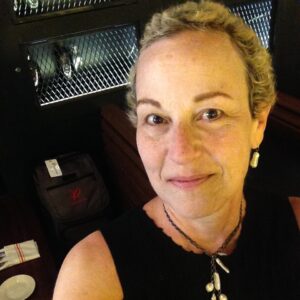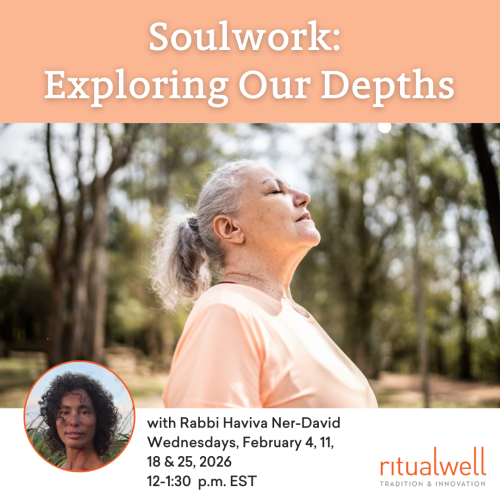In movies, when the heedless city dweller gets lost in the forest, she sometimes finds, at a particularly low moment, a shoeprint. First she exults, imagining a rescue team nearby; then she despairs, realizing that the mark was made by her own circling feet. Thrown back on her scant resources, you can almost hear her cry, as the Psalmist did: From where will my help come? (Psalm 121).
For the past couple of years I’ve been going in circles, too. In English that phrase bears a negative cast. But not in my personal dialect of spirit and practice. Circles – everywhere in Nature and the lives of humans – are a holy symbol of continuity. When anxiety creeps over me, my routines lend me discipline. Doing the hardest thing first grounds me in I can. The day takes on a comforting, rounded shape. My circles strengthen me.
When I was a child my parents took me to see the Mevlevi dervishes – the living descendants of the great 13th-century Sufi poet, mystic and theologian Jalaluddin Rumi – who were on a rare tour outside their home base in Konya, Turkey. We did not attend merely to marvel at the curiosity of “whirling dervishes.” Yes, we were drawn to the spine-tingling mystery of these men who moved with such haunting grace, planets in orbit. But I was a fellow practitioner, too. Since age four I had been learning sacred dances that drew from Rumi’s teachings. With the example of these masters came the opportunity to deepen our own work.
Sufi dancers circle while extending one palm up to receive the light from above, and one palm down to transmit that light to earth. Their bodies are the pathway for this current. The core of this teaching is the stillness at their center. “How come they don’t get dizzy?” whispered one girl to my left. What you saw was the motion; what you did not see was the magnetic force they had created – through concerted effort, over time – in their beings. Around this firmly planted axis they rotated easily, a dozen individuals in organic harmony, manifesting something undeniably sacred. Their great power was in their frictionless balance of stillness and motion; they looked as if they could keep circling forever.
This ancient tradition, like ours, found a way to show humans how to become more fully alive. Our practices, like theirs, teach us how to cultivate a strong center while using the gift of our bodies to change notions of what is possible. We come into this season of return to renew our understanding of practices developed by our ancestors; to embody them as our own.
“You have turned my mourning into dancing,” says Psalm 30 (הָפַ֣כְתָּ מִסְפְּדִי֮ לְמָחֹ֪ול לִ֥י פִּתַּ֥חְתָּ שַׂקִּ֑י וַֽתְּאַזְּרֵ֥נִי שִׂמְחָֽה׃). One of the words for forgiveness, mekhilah (מחילה) shares a root with a word for dance, makhol (מָחוֹל). In movement, where we find lightness and joy by letting go, can we also release the errors that hold us down?
This is what resonates with me: be still inside, keep turning, and let my body do the work that needs to be done.
I want to tell that little girl: I do get dizzy. I slip up. Unexpected demands pull me away. I forget. Reliable habits sometimes feel like traps. During the pandemic I have felt isolated, house-bound, restless, bored. I have craved variety, adventure, the company of others. I have wanted to run away. I have chafed at the small circles that kept me safe. I have walked around and around the house aimlessly. Yet sometimes the stripping away of distractions gave me the gift of singular focus: my circles gathered centrifugal force, a dreidel spun hard and true. They call me back: practice what you trust.
At the beginning of our own holy cycle of teshuvah, we come back – not to where we were, but to where we are. This home is both familiar and utterly unknown. I turn, and there you are: I know you, but I do not know how you are now. When I greet you, I try to quiet the noise in my head and attend fully to you and me, together. I am here so I can hear you, see you, be with you. I want to understand what you have lost and what you have found. I want to dance beside you, to share our motion – and our stillness. May our turning create the quiet force that carries the light from above to all life below.

Bija Gutoff is a writer and editor in Portland, Oregon. She has worked as a freelancer for corporate, non-profit and small business clients, and as senior writer for an international non-government organization. Her recent work is focused on healing. She has published essays, poetry and other writing in Oregon Humanities, Rattle, VoiceCatcher, Snapdragon (essay selected for that journal’s first-ever anthology, “I Tried Not to Write“), and the anthology “We Become A New Story,” published by Oregon Health and Science University. She holds a BA in Comparative Literature from Cornell University. You can find more of Bija’s writing and art at her website.






